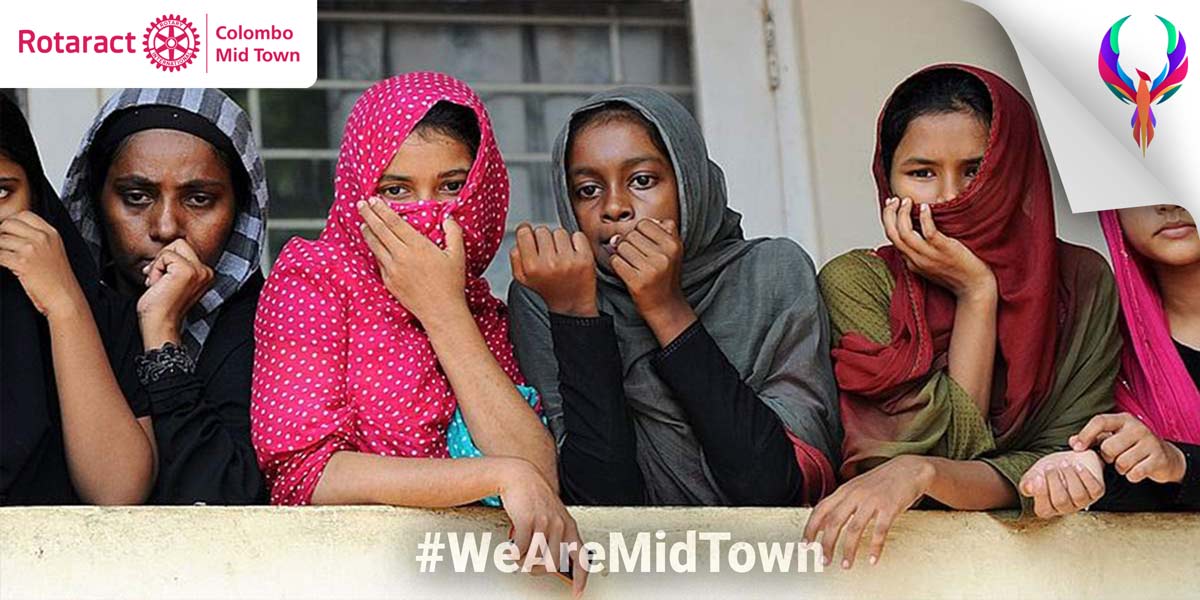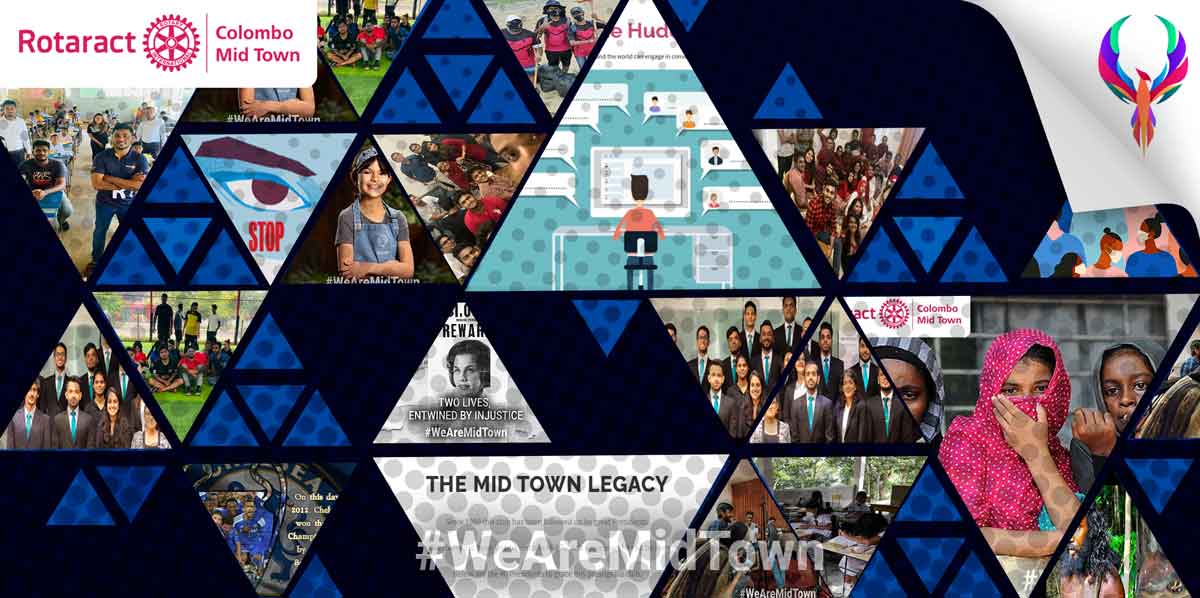Muslim Marriage and Divorce Act (MMDA) was enacted in the year 1951 to govern Muslim inhabitants who marry another Muslim (including converts to Islam). The root of the Sri Lankan MMDA derives from the marriage and divorce code of law exported from Batavia (present-day Indonesia) during the Dutch rule of 1770. Between 1806 and 1951, the Code of Law underwent a process of codification, revision, and modification, led on each occasion by a few prominent legal and religious individuals at the time.
The current act incorporates key provisions found in the previous legislation and codes and includes provisions based on Sharia law and Islamic legal practices. The Act, however, also contains clauses relating to local customs unfamiliar to Islamic law, such as that of Kaikuli (dowry granted to the bridegroom from the bride’s side) followed at the time by Sri Lankan Muslims. Regardless of certain provisions in the MMDA, Kaikuli (dowry) is considered haram (forbidden) in Islam among certain religious philosophies.
How is the MMDA governed?
A Quazi (Muslim Judge) court system was formed by the MMDA, including a Quazi Board, a five-member all-male panel, and an Advisory Board. Sri Lanka has 65 Quazi courts, each with one Quazi, representing a population of around 2 million Muslims. Most Quazis have geographical jurisdiction, but some Quazis, such as the Quazi for the Memon community, have island-wide ethnic jurisdiction anywhere Memon community members reside. And a special Quazi has been allocated in Puttalam for all internally displaced persons in the district.
Although the MMDA (Muslim Marriage and Divorce Act) is being enacted and practiced across the country for years, it has seen resistance and demand for urgent reforms since the day it was established. The shortcomings of the old community law, such as the minimum age for marriage, the lack of mutual consent for marriage and divorce, and the severe drawbacks of the current Quazi Court system, have been pointed out by many activists and yet the call to reform the MMDA in Sri Lanka remains longstanding.
What are the key issues in the MMDA?
The MMDA, drafted and enforced by a group of men not only discriminates against Muslim women in the community but also violates multiple human rights. Despite numerous oppositions by activists for more than three decades calling for the reform of the MMDA, no progress has been made to date.
One of the primary issues of the MMDA is that it violates major rights of Muslim women and it oversees gender-based inequality. Discussed below are few such concerns of the MMDA that have been identified and require substantial reforms.
1. Legitimately Permitting Child Marriages
As emphasized by UNICEF, child marriage is a violation of human rights. Every child deserves the right to have an education and the opportunity to perceive & develop their potential. Child marriages most often result in early pregnancy, mental & health issues, lack of knowledge & education, and social seclusion. While this is a problematic system across the world that simply cannot be eradicated through legal sanctions alone, the MMDA has legally allowed child marriages by not specifying on the minimum age of marriage for Muslims. According to the MMDA, a Quazi can even permit the marriage of a child under the age of 12. A child of such a small age does not even understand the chaos of the world and not the slightest knowledge of marriage life. Due to this problematic clause of the MMDA, it has led to numerous forced child marriages and child marriages continue at an unprecedented pace.
Whereas the Sri Lankan common law has clearly defined the legal age for marriage as 18 and does not allow child marriages. However, decades-old community law in the country called the Muslim Marriage and Divorce Act (MMDA) permitting a group of Muslim community leaders, who are mostly men, to determine the age of marriage for everyone in the same community not only violate basic human rights but also abuses the civil law in Sri Lanka.
2. Does Not Require Consent from The Bride
According to the common civil law in Sri Lanka, the signature or thumbprint of the bride and groom is obligatory in all marriage documentation. However, it does not apply to Muslims in the country. It is yet another one of the primary loopholes in the MMDA that there is no requirement for written consent from the bride in the marriage certificate. Hence, it is permittable in the MMDA for a Muslim woman to be given in marriage with the authority of the Quazi and the agreement of the bride’s male guardian hence known as the ‘Wali’.
There has been a number of practical issues in the Muslim community due to this which has enabled possible non-consensual marriages. Girls have been married off to some man without their knowledge and consent has arisen to scenarios that they have been physically, mentally, and emotionally abused by their husbands, some at a very young age. Similar events have also led to a series of abandonment, psychological and economic abuse, domestic violence, extortion, and family disharmony.
3. The Inequality in Divorce Procedure
Different conditions of divorce for men and women in the MMDA is another cause of concern. As indicated by the MMDA, husbands are permitted to divorce at an impulse without providing valid or legitimate reasoning which under many circumstances are not fair to the wife and is a major gender discrimination-based policy imposed by an all-male panel of Quazis. Sunni wives are only granted a divorce based on harm, the return of Mahr, or mutual consent. And under the Shafi school of jurisprudence, the divorce process for the wives is lengthy, involving explanations and facts, witnesses, and hearing of the case. While under some Shia sect’s, there is no way for women to receive a divorce of their own will under, or for Quazi to grant her divorce. Consent from the husband is often required to allow the divorce.
This inequality of divorce procedure has been unjust to Muslim women as they have been restricted from elaborating their side of the story to the court. There have been many cases reported that the divorce cases have been biased where the male counterpart is often favoured. In such instances, due to Quazis granting the divorce to the husbands, the women are those who were left stranded, abandoned, and helpless.
4. No Conditions for Polygamy
Although polygamy (having more than one wife at the same time) generates more misconceptions on Islam than ever, Islam has only permitted polygamy to men under certain circumstances to be practised under certain conditions and with restrictions. While Islam limits the number of wives allowed to four, it also discourages the practice. Even in such cases, the husband is expected to provide for his multiple wives equally.
However, the MMDA states no conditions for polygamy and hence allows the practice of polygamy without requiring explicit consent from the wife. Upon obtaining Quazis permission, the husband must publish a poster notifying another marriage in the corresponding mosque of the first wife, and if no challenges occur, the marriage will take place. However, none of the wives has the chance to see this poster. Hence, polygamy in this community could often take place without knowledge and consent. Although there are only a few cases that have been known and reported, there are innumerable cases where the newly wedded wife was unaware the husband is having other wives and the existing wife/wives are unaware that the husband had taken another wife. These issues are not only causing crucial social issues but are also viewed as extremely unethical.
5. Restriction of Females as Quazis
The Holy Quran does not discriminate against men and women, and thus promotes equality at all times. The MMDA demonstrates otherwise. However, it does not allow qualified women to be marriage registrars, Quazis, jurors or members of the Quazi Board, whereas the Quazi position has been established as a state-wage and tax-funded position allowing women to be discriminated against simply based on their gender.
While there are many examples of Muslim women in positions of power as judges in the Quazi or Sharia courts in other parts of the world, the difference of opinion in leadership and equality tends to be unique to the system in Sri Lanka. Regardless of many calls to reformations on the MMDA with regards to gender equality within the system, the problem remains to be unresolved till now.
Over the years many activist organizations have been advocating to reform the MMDA pointing out multiple issues that affect the Muslim community and gender injustice. Subsequently, several committees were formed to analyze the Muslim Family law reforms, requesting to submit reports on the prevailing issues on the MMDA. The reforms, however, remain being debated yet unsettled and unable to take the reforms process forward because there are divided opinions among members of the latest committee formed back in 2009.
“Since these reforms define the rights and morality of the Muslim community, especially women and children, it is the responsibility of the state to ensure that all its citizens are protected and treated as equals. While the decisions are being influenced by the opinions of several religious scholars and institutions, the government must act decisively and forthwith to reform the laws that discriminate women from men and protect children and their rights. It is the right of every individual to be treated as equals and not be victims of the cultural and patriarchal biased laws.”
— Rtr. Rinusha






